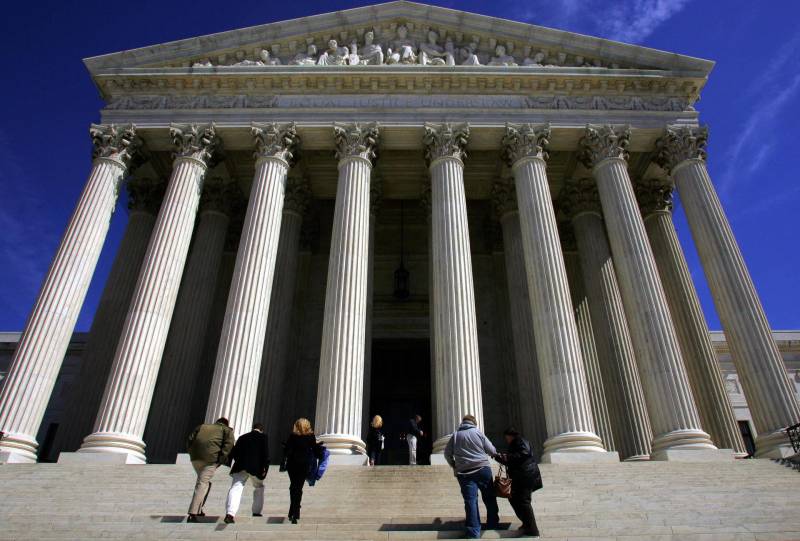Justices Anthony Kennedy, Ruth Bader Ginsburg, Sonia Sotomayor and Elena Kagan joined Breyer.
Chief Justice John Roberts and Justices Samuel Alito and Clarence Thomas dissented.
Thomas wrote that the decision "exemplifies the court's troubling tendency 'to bend the rules when any effort to limit abortion, or even to speak in opposition to abortion, is at issue.'" Thomas was quoting an earlier abortion dissent from Justice Antonin Scalia, who died in February.
Abortion providers said the rules would have cut the number of abortion clinics in the state by three-fourths if they had been allowed to take full effect.
When then-Gov. Rick Perry signed the law in 2013, there were about 40 clinics throughout the state. That number dropped to under 20 and would have been cut in half again if the law had taken full effect, the clinics said.
Texas is among 10 states with similar admitting privileges requirements, according to the Center for Reproductive Rights. The requirement is in effect in most of Texas, Missouri, North Dakota and Tennessee. It is on hold in Alabama, Kansas, Louisiana, Mississippi, Oklahoma and Wisconsin.
The hospital-like outpatient surgery standards are in place in Michigan, Missouri, Pennsylvania and Virginia, and it is blocked in Tennessee and Texas, according to the center, which represented the clinics in the Texas case.
Texas passed a broad bill imposing several abortion restrictions in 2013. Texas clinics sued immediately to block it claiming it impermissibly interfered with a woman's constitutional right to an abortion. The clinics won several favorable rulings in a federal district court in Texas. But each time, the New Orleans-based 5th U.S. Circuit Court of Appeals sided with the state, at first allowing challenged provisions to take effect and then upholding the law with only slight exceptions.
Where does Monday's decision fit in to the Supreme Court's historical rulings? Some context from The New York Times:
Monday’s case, Whole Woman’s Health v. Hellerstedt, No. 15-274, concerned a more fundamental question and seemed poised to be the third installment in a legal trilogy on the scope of the constitutional right to abortion, one that started in 1973 with Roe v. Wade, which recognized a constitutional right to abortion, and continued in 1992 with Planned Parenthood v. Casey.
The Casey decision said states may not place undue burdens on the constitutional right to abortion before fetal viability. Undue burdens, it said, included “unnecessary health regulations that have the purpose or effect of presenting a substantial obstacle to a woman seeking an abortion.”
